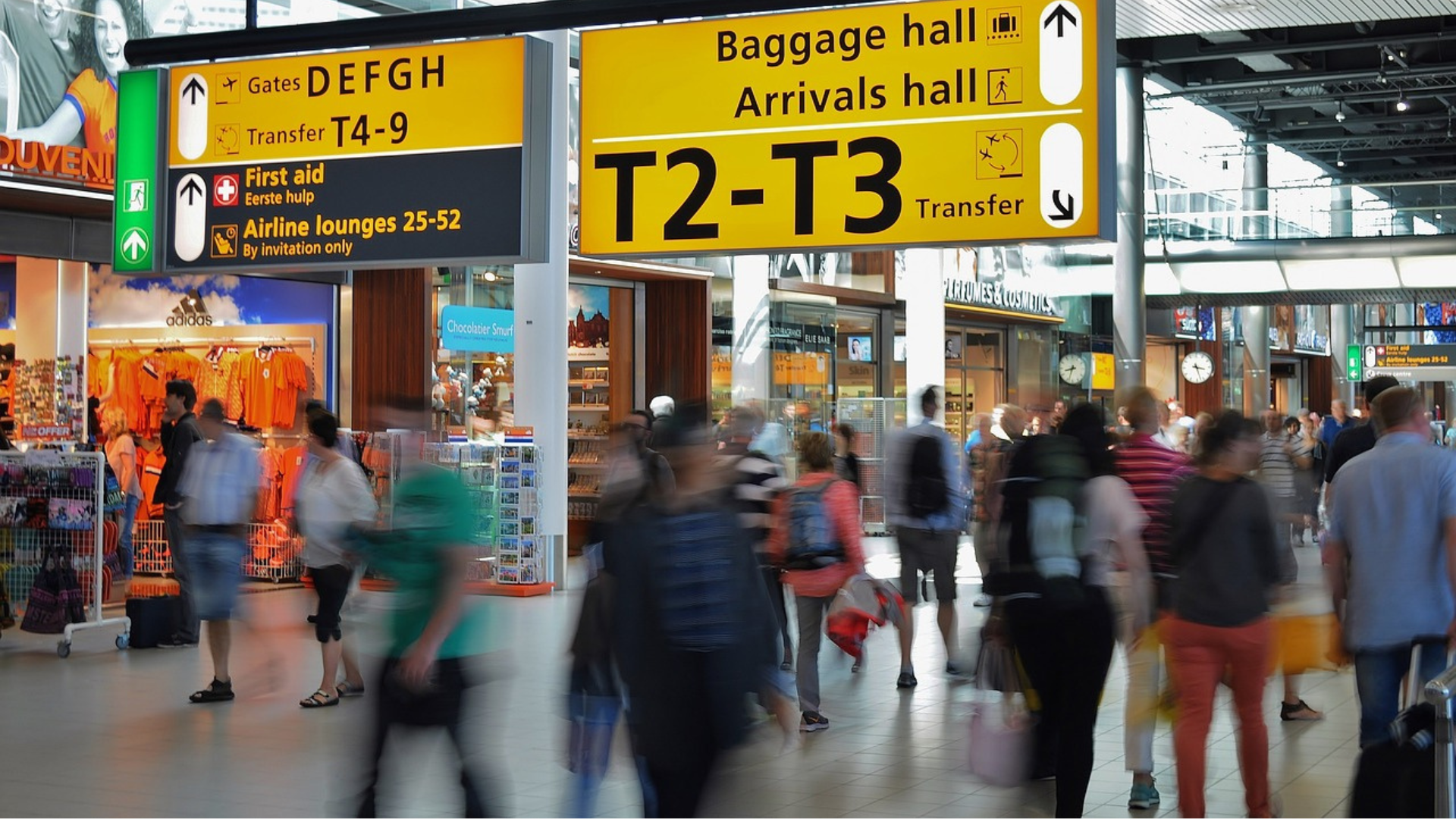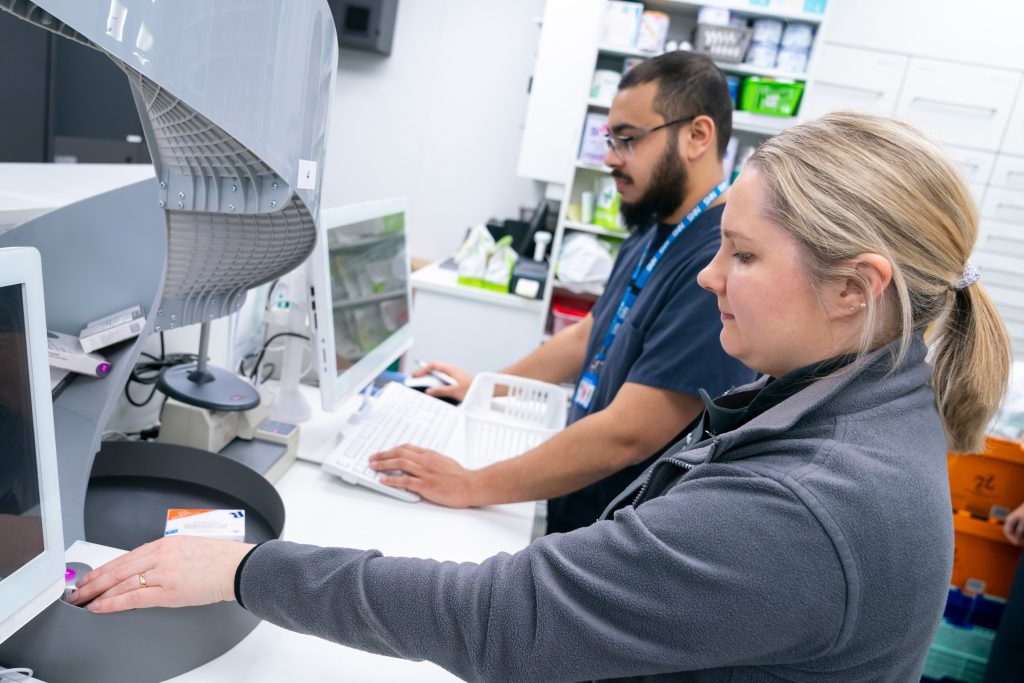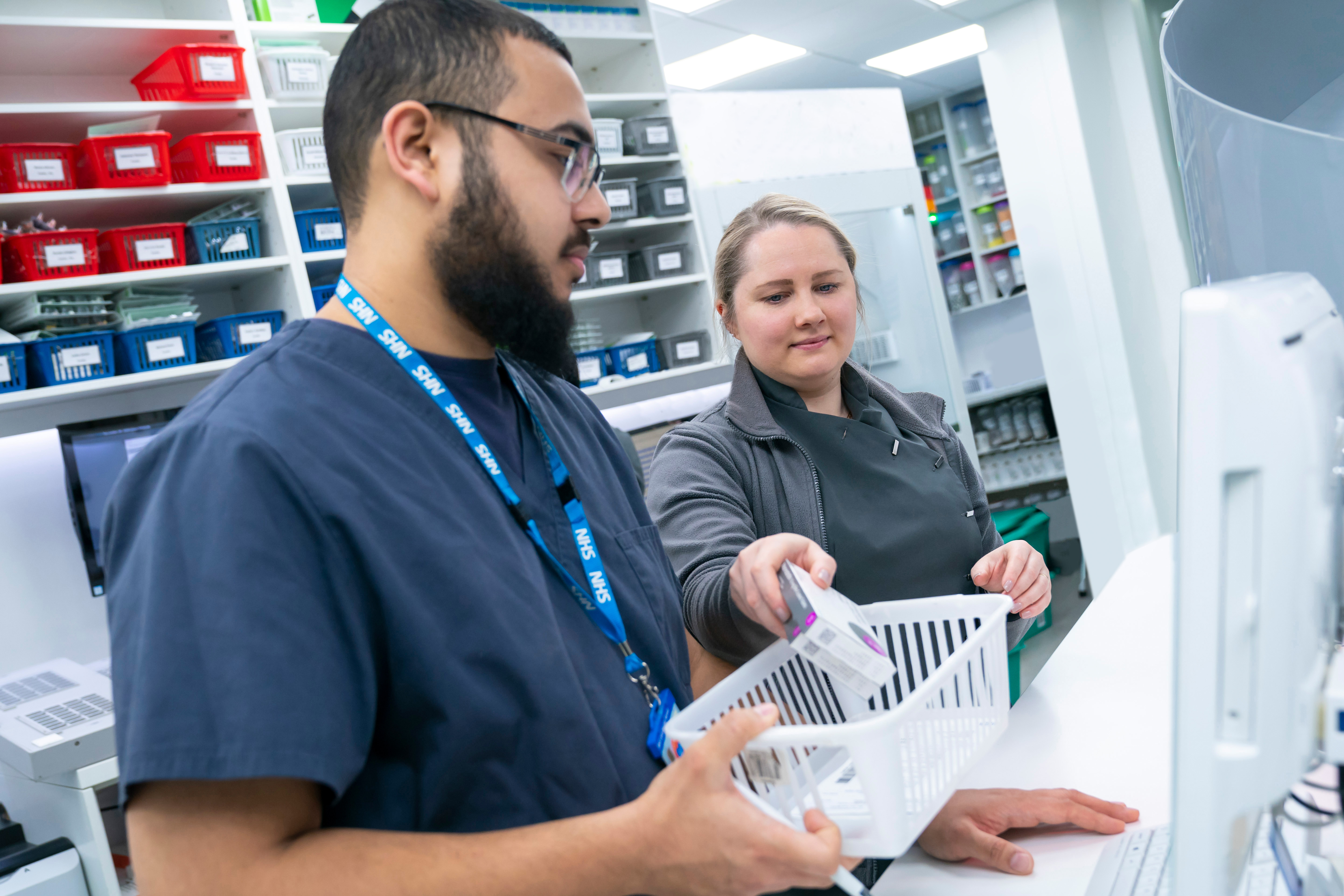
EEA pharmacists preparing to work in Great Britain
Are you planning on working in Great Britain? This page is for pharmacists from the EEA, who have joined, or are preparing to join the GPhC register.

Are you thinking about working abroad? This page contains lots of useful information about what you will need to consider when registering as a pharmacist in another country.
This page is about how pharmacists currently working in Great Britain might approach looking for a job abroad. If you’re an overseas pharmacist interested in practising as a pharmacist in Great Britain, please refer to our pages for EEA pharmacists preparing to work in Great Britain and the Overseas Pharmacists Assessment Programme for non-EEA pharmacists. You can also find full guidance on the General Pharmaceutical Council (GPhC) website.
We understand that it can be exciting to make a change in your life and to have a new start in another country. However, if you’re thinking of leaving due to the stress of workplace practices in Great Britain, please reach out to us as we have a variety of services that can support you. We also offer a host of free mental health, wellbeing and work life information and resources which you might find useful. Or, if you feel that you would like to step away from the pharmacy sector completely, you could take a look at our webpage on career options with an MPharm qualification.
There are many steps involved with moving abroad and becoming a registered pharmacist in another country, including:
Every country has their own pharmaceutical regulatory/professional bodies which can give you further information about registering and working in their country. Alternatively, you can contact their embassy for more information.
In order to practice as a pharmacist, some countries will require applicants to sit exams in order to prove their competency as a pharmacist. Once all other paperwork has been completed, some countries may require pharmacists to undergo a period of training before being recognised as an experienced pharmacist. Pharmacists should be aware that some countries, for example, America, will require applicants to sit an English exam, even when English is their first language. The authority responsible for access to the pharmacy profession in the host country will explain what documents are required.
Pharmacists should note that some countries will require pharmacists to have a job offer before going through the visa and/or registration process.
Some authorities will require certified copies of documents (to prove that they are genuine), and in some circumstances, they may request sworn translations for key documents. Often, authorities will have a list of preferred translators. Pharmacists will need to check with the individual regulator for their exact requirements.
Ordinarily, pharmacists will need to ask the GPhC to send a certificate of current professional status (CCPS; formerly known as a Letter of good standing) and fitness to practise history to the relevant registration and/or regulatory authority. If there are no past or pending fitness to practise issues, the certificate will be created and sent directly to the relevant board. An administration fee is charged for this process.
In cases where there are past and pending fitness to practise matters, the certificate is created and sent, in the first instance, to the pharmacist who requested it. The GPhC will only forward this to the relevant board on receipt of written conformation from the pharmacist stating that they wish to proceed. Pharmacists have 21 days to respond, and should note that the administration fee is charged even if the CCPS is not forwarded.
For further information about the current professional status certificate, see the GPhC website.
Pharmacists who want to work abroad will also need to consider the language requirements of the country to which they are planning to move. Moving to a country where English is the official language (for example, Canada, New Zealand, Australia and the United States) would be relatively straight forward, language wise, although additional languages may be useful and/or needed (for example, French would be a useful addition for Canada). However, some parts of Europe will require pharmacists to be fluent in the home language, and in some instances (for example, Belgium and Luxembourg) pharmacists will ideally need to be fluent in several European languages.
Pharmacists can check with the professional pharmaceutical body in their preferred country to see what possible job opportunities might be available to them. Some large multiples may be wiling to sponsor an applicant and cover the costs of exams on the understanding that the candidate works for them once registered.
There are many websites and search engines that can help people to find job opportunities. Below are some suggestions:
Emedcareers lists vacancies in Europe and has a facility for uploading a CV and will also email personalised jobs to pharmacists who request this service. For further information, see the Emedcareers website.
EuroPharmajobs has a search facility for job type and location, and will send out job alerts on request. For further information, see the EuroPharmajobs website.
You’ll need a work permit to work in most EU countries if you’re a UK citizen. In most cases, you’ll need a job offer from your chosen country so that you can get a visa to move there. Check with the UK-based embassy of the country you want to work in to see what you need to do.
For further information about passports, travelling and living abroad, see the UK government website.
People who are moving abroad on a permanent basis will no longer be entitled to medical treatment in the UK under the normal NHS rules. The NHS recommends that people check to see what health services are available in their country of choice. People who register for work in an European Economic Area (EEA) country and begin to make national insurance contributions in that country will be entitled to state provided healthcare on the same basis as a national of that country. In all instances, pharmacists should check to ensure what health insurance is needed in advance of travelling. Equally, all pharmacists should check to see what, if any, inoculations are needed well in advance of travelling.
For a country-by-county guide to EEA and non-EEA healthcare, see the NHS website.

Pharmacists who allow their registration to lapse without informing the GPhC will be removed from the register.
Are you thinking about working abroad? This page contains lots of useful information about what you will need to consider when registering as a pharmacist in another country.
Pharmacists who do not wish to remain on the GPhC register will need to apply to have their details removed from the register. Pharmacists who allow their registration to lapse without informing the GPhC will be removed from the register and any future application to return to the register will be more complex and will also incur additional costs.
For further information about leaving the register, see the GPhC website.
Employed community Pharmacists In Europe (EPhEU) is a European wide organisation representing the interests of employed community pharmacists. For further information, see the EPhEU website.
Your Europe provides advice regarding the recognition of profession qualifications within Europe. For further information, see the Your Europe website.
The Commonwealth Pharmacists Association is an organisation of Commonwealth professional pharmaceutical bodies and individual members. For further information, see the Commonwealth Pharmacists Association website.
This page was last reviewed and updated in November 2025.

Are you planning on working in Great Britain? This page is for pharmacists from the EEA, who have joined, or are preparing to join the GPhC register.

Are you planning a career change? This page is for pharmacists who are looking for an alternative career, either within the pharmaceutical environment or in non-pharmacy-related work.

This page contains information for non-EEA pharmacists who wish to register in Great Britain.